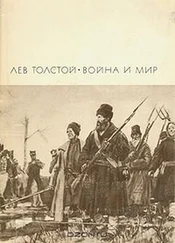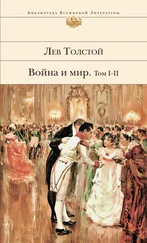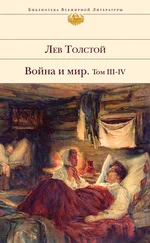| The German, Pahlen, has been sent to New York in America, to fetch the Frenchman, Moreau," he said, alluding to the invitation made that year to Moreau to enter the Russian service.... "Wonderful!... Were the Potemkins, Suvorovs, and Orlovs Germans? |
Немца Палена в Новый-Йорк, в Америку, за французом Моро послали, - сказал он, намекая на приглашение, которое в этом году было сделано Моро вступить в русскую службу. - Чудеса!... Что Потемкины, Суворовы, Орловы разве немцы были? |
| No, lad, either you fellows have all lost your wits, or I have outlived mine. |
Нет, брат, либо там вы все с ума сошли, либо я из ума выжил. |
| May God help you, but we'll see what will happen. |
Дай вам Бог, а мы посмотрим. |
| Buonaparte has become a great commander among them! |
Бонапарте у них стал полководец великий! |
| Hm!..." |
Гм!... |
| "I don't at all say that all the plans are good," said Prince Andrew, "I am only surprised at your opinion of Bonaparte. |
- Я ничего не говорю, чтобы все распоряжения были хороши, - сказал князь Андрей, - только я не могу понять, как вы можете так судить о Бонапарте. |
| You may laugh as much as you like, but all the same Bonaparte is a great general!" |
Смейтесь, как хотите, а Бонапарте всё-таки великий полководец! |
| "Michael Ivanovich!" cried the old prince to the architect who, busy with his roast meat, hoped he had been forgotten: "Didn't I tell you Buonaparte was a great tactician? |
- Михайла Иванович! - закричал старый князь архитектору, который, занявшись жарким, надеялся, что про него забыли. - Я вам говорил, что Бонапарте великий тактик? |
| Here, he says the same thing." |
Вон и он говорит. |
| "To be sure, your excellency," replied the architect. |
- Как же, ваше сиятельство, - отвечал архитектор. |
| The prince again laughed his frigid laugh. |
Князь опять засмеялся своим холодным смехом. |
| "Buonaparte was born with a silver spoon in his mouth. |
- Бонапарте в рубашке родился. |
| He has got splendid soldiers. |
Солдаты у него прекрасные. |
| Besides he began by attacking Germans. |
Да и на первых он на немцев напал. |
| And only idlers have failed to beat the Germans. |
А немцев только ленивый не бил. |
| Since the world began everybody has beaten the Germans. |
С тех пор как мир стоит, немцев все били. |
| They beat no one-except one another. |
А они никого. Только друг друга. |
| He made his reputation fighting them." |
Он на них свою славу сделал. |
| And the prince began explaining all the blunders which, according to him, Bonaparte had made in his campaigns and even in politics. |
И князь начал разбирать все ошибки, которые, по его понятиям, делал Бонапарте во всех своих войнах и даже в государственных делах. |
| His son made no rejoinder, but it was evident that whatever arguments were presented he was as little able as his father to change his opinion. |
Сын не возражал, но видно было, что какие бы доводы ему ни представляли, он так же мало способен был изменить свое мнение, как и старый князь. |
| He listened, refraining from a reply, and involuntarily wondered how this old man, living alone in the country for so many years, could know and discuss so minutely and acutely all the recent European military and political events. |
Князь Андрей слушал, удерживаясь от возражений и невольно удивляясь, как мог этот старый человек, сидя столько лет один безвыездно в деревне, в таких подробностях и с такою тонкостью знать и обсуживать все военные и политические обстоятельства Европы последних годов. |
| "You think I'm an old man and don't understand the present state of affairs?" concluded his father. "But it troubles me. |
- Ты думаешь, я, старик, не понимаю настоящего положения дел? - заключил он. - А мне оно вот где! |
| I don't sleep at night. |
Я ночи не сплю. |
| Come now, where has this great commander of yours shown his skill?" he concluded. |
Ну, где же этот великий полководец твой-то, где он показал себя? |
| "That would take too long to tell," answered the son. |
- Это длинно было бы, - отвечал сын. |
| "Well, then go to your Buonaparte! |
- Ступай же ты к Буонапарте своему. |
| Mademoiselle Bourienne, here's another admirer of that powder-monkey emperor of yours," he exclaimed in excellent French. |
M-lle Bourienne, voil? encore un admirateur de votre goujat d'empereur! [вот еще поклонник вашего холопского императора...] - закричал он отличным французским языком. |
| "You know, Prince, I am not a Bonapartist!" |
-Vous savez, que je ne suis pas bonapartiste, mon prince. [Вы знаете, князь, что я не бонапартистка.] |
| "Dieu sait quand reviendra..." hummed the prince out of tune and, with a laugh still more so, he quitted the table. |
- "Dieu sait quand reviendra"... [Бог знает, вернется когда!] - пропел князь фальшиво, еще фальшивее засмеялся и вышел из-за стола. |
| The little princess during the whole discussion and the rest of the dinner sat silent, glancing with a frightened look now at her father-in-law and now at Princess Mary. |
Маленькая княгиня во всё время спора и остального обеда молчала и испуганно поглядывала то на княжну Марью, то на свекра. |
| When they left the table she took her sister-in-law's arm and drew her into another room. |
Когда они вышли из-за стола, она взяла за руку золовку и отозвала ее в другую комнату. |
| "What a clever man your father is," said she; "perhaps that is why I am afraid of him." |
- ^mme c'est un homme d'esprit votre p?re, -сказала она, - c'est ? cause de cela peut-?tre qu'il me fait peur. [Какой умный человек ваш батюшка. Может быть, от этого-то я и боюсь его.] |
| "Oh, he is so kind!" answered Princess Mary. |
- Ax, он так добр! - сказала княжна. |
| CHAPTER XXVIII |
XXVIII |
| Prince Andrew was to leave next evening. |
Князь Андрей уезжал на другой день вечером. |
| The old prince, not altering his routine, retired as usual after dinner. |
Старый князь, не отступая от своего порядка, после обеда ушел к себе. |
| The little princess was in her sister-in-law's room. |
Маленькая княгиня была у золовки. |
| Prince Andrew in a traveling coat without epaulettes had been packing with his valet in the rooms assigned to him. |
Князь Андрей, одевшись в дорожный сюртук без эполет, в отведенных ему покоях укладывался с своим камердинером. |
| After inspecting the carriage himself and seeing the trunks put in, he ordered the horses to be harnessed. |
Сам осмотрев коляску и укладку чемоданов, он велел закладывать. |



